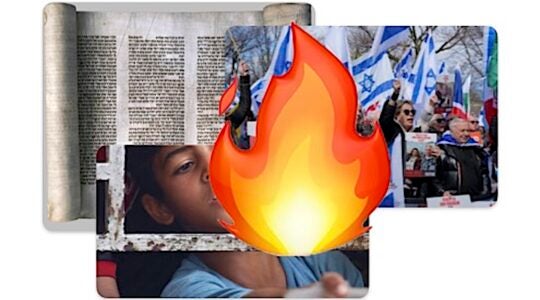A wild and dangerous “spring” is raging in the countries surrounding Israel. Egypt, Syria and Lebanon face internal battles for control that are motivated by religion, nationalism, tribal loyalties and financial gain. The situation in Jordan is precarious and may similarly deteriorate into war. The toll, in Syria at least, has been high. According to estimates, over 100,000 civilians have been slaughtered in Syria alone, and its land is drenched in Arab blood. In Israel, by contrast, the situation is relatively calm and stable. Despite the proximity, life on the two sides of the borders seems to be taking place on different planets.
In terms of morality, how should we in Israel feel about the mass slaughter of Arabs by Arabs — including with nonconventional weapons — just a few miles away?
On the surface, we could be indifferent: these are the domestic broils of a foreign country beyond a hostile border. Some may think that Syrian President Bashar Assad and the rebels are both enemies of Israel; the more they shed each other’s blood, the less of a threat they are to Israel. The truly heartless might even welcome the Arab slaughter as “doing the job for Israel.”
Yet Judaism rests on a profound humanistic view that sanctifies all human life regardless of identity, national affiliation or religion. As Rabbi Akiva said, “Human beings are beloved because they were created in the image of God.” This includes the Egyptian peasant and the boy in Damascus. We do not need philosophical treatises or international conventions to recoil from the mass murder of any people; our human, Jewish sensitivity makes us do so.
One of the moving proofs of this universal, humanistic message is found in the Torah readings of the two days of Rosh HaShanah. The Sages could have chosen to highlight God’s creation of the universe by having us read the first chapter of Genesis; they could have emphasized the election of the Jewish people by having us read about the Covenant of the Pieces between God and Abraham, or stressed our religious obligations by choosing the Ten Commandments. Instead, however, they focused on a powerful ethical message.
On the second day of Rosh HaShanah, we read about the Binding of Isaac, when Abraham, the father of our nation, was prepared to make a supreme sacrifice and kill his son — the progenitor of the future Jewish people — to fulfill God’s will. On the first day of the festival, somewhat surprisingly, we read about the flight of Abraham’s concubine Hagar, who was cast out of Abraham and Sarah’s home with her young son Ishmael, who was destined to be the father of the Arab nation. Hagar loses her way in the wilderness and Ishmael is about to perish of thirst; she lays him down and walks away, so as not to see his impending death. But just as in the Binding of Isaac, when God sends an angel to stop Abraham, an angel appears and rescues Ishmael from death. God knows that this child’s descendants will mistreat the Chosen People in the future, but sends an angel to save him nonetheless.
When our Sages instructed us to read these stories of the Binding of Ishmael” on the first days of the annual cycle of Jewish life, they conveyed to us a universal, humanistic message: the life of an innocent person — any person, even one who is destined to produce a mythological enemy — is precious. In juxtaposing the stories of the bindings of Abraham’s two sons, the rabbis made it clear that the significance of Isaac, the father of the Jewish nation, is identical to the significance of Ishmael, the forefather of our present-day antagonists.
It is possible that the boy in the Damascus suburbs who was asphyxiated by poison gas would have grown up to join al Qaeda or to be an aggressive Syrian dictator. Nevertheless, because of my deep religious commitment, I lament his death with all my soul. I can only pray that, in our generation, the Lord will save all children — including descendants of Ishmael and Isaac — from being the victims of violence, wherever they may live.
Professor Yedidia Z. Stern is vice president of research at the Israel Democracy Institute and a law professor at Bar-Ilan University. “Democracy vs./and Judaism” is a biweekly column by researchers from IDI’s Human Rights and Judaism project on the dialogue between the Jewish and democratic traditions.
The New York Jewish Week brings you the stories behind the headlines, keeping you connected to Jewish life in New York. Help sustain the reporting you trust by donating today.




